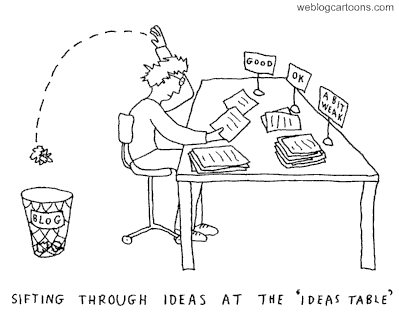Research Question & Literature Review
I have to say it has been quite a process trying to formulate a research question from which to base my literature review.
I have invested a lot of time and energy this year into my Scholarship Physical Education students and their portfolios. It is an interesting setup. Students have a year to produce a piece of academic writing on something within the field of Physical Education. I actively encourage them to choose an issue of socio-cultural and biophysical significance and, most importantly, on an issue that they have a personal connection with. For some this is around body image and obsession, for others it may be dropping out of sport, gender identity in sport etc.
Central to this thinking was Azzarito & Ennis (2003) who note in the field of Physical Education that, “pedagogical approaches that allow students to connect to each other, their teachers, and the real world, and also to make connections between their prior knowledge and new knowledge are central to social constructivism”. Further, that, “authentic learning, therefore, results when students connect classroom activities to their lived experiences and to their lives”.
The premise therefore is that students are more likely to engage in the learning of how to write academically - which does not come naturally - if they are simultaneously learning that through an issue of personal significance. I wanted to leverage that passion.
However, because the portfolios are being done using Google Docs, the possibility arises that the teacher may alter a student's work, or indeed suggest whole sections for them. It could be well intentioned as an example or suggestion, but that level of feedback or direction is taking it too far. I am curious to know if students feel obliged to include suggestions and feedback in their research work because it has come from the teacher (so must be authentic). Do they lose autonomy and control of their project?
Initially, feedback and reworking is a co-constructed process so they learn how to write academically, reference correctly and structure an argument. The literature is clear that this is a necessary approach i.e. deliberate teaching of the process through scaffolding and modelling. This issue arises when it goes beyond this initial stage and becomes collusion.
It is an ethical tension. One one hand, as teachers, we see what needs to be done, could be done, to make a piece of work better (and we want to see the student do well), but on the other hand, we are abusing the position of power we find ourselves in and taking wresting control of learning from the student.
I have been very conscious of that this year with my Scholarship PE students but know - anecdotally - it is taking place in other schools.
Consequently, my research question is:
" What factors influence how teachers' navigate the murky waters of digital collaboration and collusion in high stakes student academic writing?"
I picked certain words carefully. "Navigate" because this represents a personal journey in this area from Digital 1 and 2. It also infers that there may be ways to mitigate it. "Murky Waters" because collaboration/collusion are subjective terms and there is no clear demarcation line. "High stakes academic writing" covers both senior secondary and university level (the bulk of the literature) and also implies some form of co-construction between teacher and student which suggests tensions of power, ethics, autonomy.
Now I just have to do it all in about 2500 words!
References:
Azzarito, L., & Ennis, C.D. (2003). A sense of connection: Toward social constructivist physical education. Sport, Education, and Society, 8,179-197. Retrieved 12 August 2017, from http://libres.uncg.edu/ir/uncg/f/c_ennis_sense_2003.pdf
Collaboration & Collusion. (2017). Londonmetsu.org.uk. Retrieved 6 December 2017, from https://www.londonmetsu.org.uk/advice/heroes_villains/collaboration/
Collaboration & Collusion. (2017). Londonmetsu.org.uk. Retrieved 6 December 2017, from https://www.londonmetsu.org.uk/advice/heroes_villains/collaboration/




Comments
Post a Comment